Tata Technologies and GKN Unveil New e-Mobility Center in Bengaluru
- By MT Bureau
- October 08, 2020
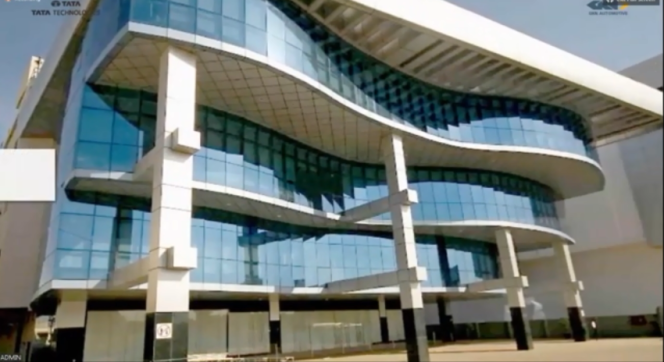
Tata Technologies, a leading global engineering and product development digital services company, and GKN Automotive, a global leader in development and supply of driveline systems and ePowertrain technologies, have opened a new software development hub for e-mobility solutions in Bengaluru. The centre aims to be a world-class hub for engineering talent in the automotive industry. It will be working on the latest and next-gen technologies with some of the leading OEMs across the world.

The center will enable the development of end-to-end powertrain software and also development of various components of the vehicles, including for the combustion vehicles. With this partnership, GKN will bring in its IP (Intellectual Property), its technology and its access to a global customer base. Tata Technologies will bring in its skills, capabilities and knowhow to operate such a centre in India.

Speaking on the opportunities from the growing EV space, Warren Harris, CEO & MD, Tata Technologies, said, “Last year itself, there were 2.3 million electric vehicles sold which represents a penetration rate of 2.4 percent. By 2030, electric vehicles are likely to make up more than 35 percent of all the vehicles sold in the world. This collaboration with GKN Automotive will significantly contribute towards the development of the next generation of electric vehicles that are sustainable and help us achieve a greener world.”
Warren further adds, “The real challenge for electric mobility in India is the prices. Prices are the real driver of consumer sentiments and we need to have the ability to apply frugal innovation or engineering capabilities to the technologies that are being developed in different parts of the world. We have a strong reputation in the EV space, particularly, in terms of lightweighting and vehicle integration. We have strong relations with Chinese OEMs like for the Nio.”
Dr Rainer Link, Vice President Engineering, e-Powertrain, GKN Automotive said, “It brings us immense pleasure to be a part of this software hub. This partnership with Tata gives us access to world-class engineering talents. This is essential for us in our transformation from mechanical to software and electronics. The innovations coming from this tech centre will enable our e-drive technologies to grow further.”

Rainer further adds, “All the global OEMs are making a rapid shift to e-mobility with the government encouraging with incentives and all the legal points over emissions. This new hub would be able to support global automotive manufacturers with future electrification programs.”
Nachiket Paranjpe, Senior Vice President, EU-Sales, Tata Technologies said, “Since we work on a lot of software components, this hub would predominantly deal with gearboxes, battery chargers, inverters and similar others. The skills that are being leveraged at this centre is primarily software development. Many companies have started working with a common software platform called the AUTOSAR. We can implement, configure and test AUTOSAR-compliant software.”
Arun Krishnamurthi, President-Sales, Europe, Tata Technologies, said, “The collaboration combines GKN’s proven expertise in e-drive systems with Tata Technologies’s expertise in the embedded and electrical space. This will place our product engineering capabilities in the embedded space among the European OEMs. It would especially aid in establishing a bigger impression among the German OEMs.”

Dr Christoph Gillen, Director, Product Technology, Electrical Systems, GKN Automotive said, “This partnership with Tata Technologies would enable GKN Automotive to advance its products for electrified vehicles, increase efficiencies and become an even more attractive partner for global automotive manufacturers. ”
Today, the centre has 42 engineers and expects to have more than 100 engineers by the end of the year. Commissioned in March 2020, the centre saw a soft launch on September 2 and has been operational even in these COVID-19 pandemic periods. The centre is equipped with various testing capabilities that ensures that the functions are implemented properly and the features that are developed for a particular component are accurate.
ZF, BMW Sign Long-Term Supply Agreement For Drive Technologies
- By MT Bureau
- February 03, 2026
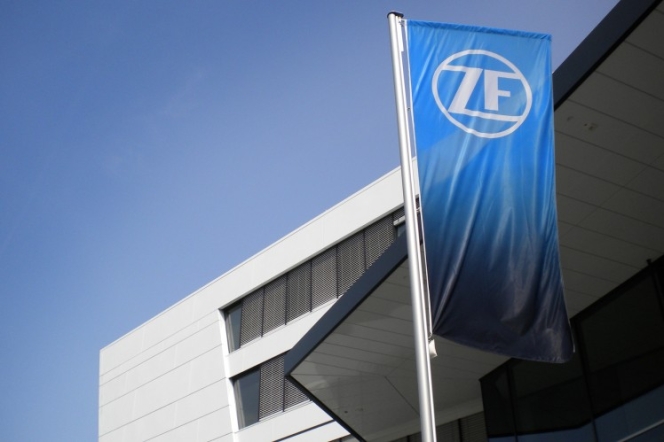
German tier 1 supplier ZF Friedrichshafen and the BMW Group have entered into a long-term supply agreement for passenger car drive systems. The contract, valued at several billion euros, extends until the late 2030s.
The agreement focuses on the supply and continued development of the 8-speed automatic transmission (8HP). The partners aim to support low-emission mobility and maintain technological flexibility during the industry transition.
A central component of the partnership is the technical evolution of the 8HP transmission kit to meet the requirements of electrified drives. The development will focus on increasing efficiency and performance for future vehicle concepts.
Mathias Miedreich, CEO of ZF, said, “Together with BMW, we are sending a strong signal for innovation, efficiency, and sustainability in an industry undergoing dynamic change. This agreement highlights the strategic importance of our 8-speed automatic transmission as a key technology for the transformation of drive systems.”
The duration of the contract provides both ZF and BMW with planning stability in a changing market. ZF aims to strengthen its position as a system supplier while reducing risks through close collaboration with the carmaker.
Sebastian Schmitt, Head of ZF's Electrified Drive Technologies division, explained, “The new agreement with BMW shows how important long-term planning horizons are for technological advancements. It creates clarity and stability for both companies and enables us to align the next generation of the 8HP specifically toward efficiency, performance, and long-term viability.”
Leapmotor Selects Aumovio For Safety Technologies
- By MT Bureau
- February 02, 2026
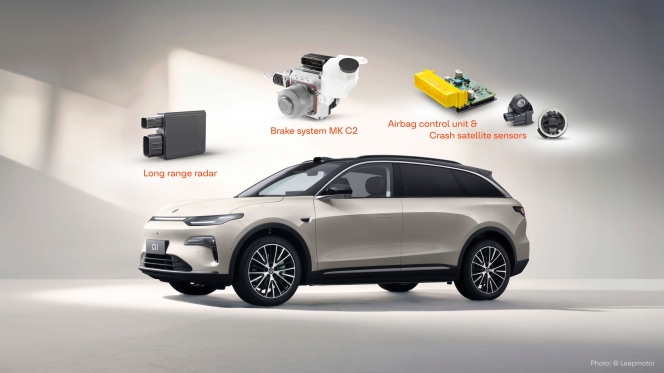
Aumovio has entered a supply agreement with Chinese electric vehicle manufacturer Leapmotor to provide safety components for the carmaker’s B and C platforms.
Several models within Leapmotor’s B platform now utilise Aumovio's long-range radar, electric parking brake and airbag control unit (ACU). Models on the C platform, including the C10, C11 and C16 SUVs, feature the latest generation of the MK C2 one-box brake system, alongside the long-range radar and ACU.
The project was completed with a development cycle approximately one-third shorter than traditional automotive timelines. Aumovio attributed its speed to ‘local-for-local’ strategy in China, where the company operates 20 sites and employs around 10,000 staff. In 2024, Aumovio held a 14 percent share of market revenue in the region.
The supplied technologies include:
- MK C2 Brake System: A unit combining the master cylinder, electronic brake system, and brake booster. It is produced locally in Shanghai.
- Long-Range Radar: A sensor with a detection range of up to 280 metres, used for driver assistance across both platforms.
- Airbag Control Unit (ACU): Integrated with crash satellite sensors, these components are manufactured in Changchun.
Boris Mergell, Head of the Safety and Motion business area at Aumovio, said, “Pairing ‘China speed’ with ‘German quality’ technologies helped us to support a rapid roll-out with our latest safety technologies. This underscores Aumovio’s course towards an adaptive powerhouse that works flexibly and closely with customers to innovate. It also shows that we continue to strengthen our customer relationships in the important market China.”
The partnership supports Leapmotor’s international presence. The B10 and B05 models, which feature Aumovio's ACU and radar technology, were showcased at the IAA 2025 in Munich as part of the manufacturer's European entry.
LTTS Secures Multi-Year Deal From Automotive OEM For Engineering And R&D
- By MT Bureau
- January 28, 2026
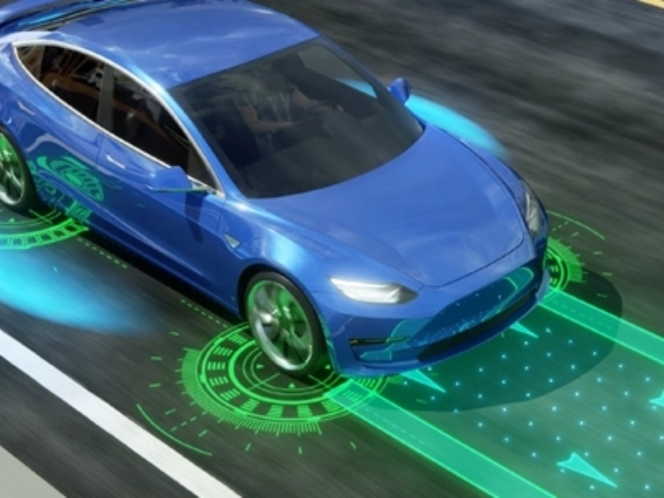
Bengaluru-headquartered ER&D company L&T Technology Services (LTTS) has announced a multi-year engagement within its mobility segment from an automotive manufacturer. The agreement involves software, connectivity and digital engineering services across vehicle technology domains. This win follows the company’s investments in R&D labs and mobility infrastructure designed for programs with global manufacturers.
The engagement covers mobility engineering capabilities, including embedded systems, digital platforms, verification and validation, cloud integration and cybersecurity. LTTS intends to use its engineering expertise and delivery frameworks to support the customer's technology roadmap.
At present, LTTS operates 22 design centres and 100 innovation labs globally.
The agreement strengthens the partnership between LTTS and the automotive manufacturer in the area of mobility engineering. The company provides design, development, and testing services across the mobility, sustainability, and tech segments.
Alind Saxena, Executive Director and President, Mobility and Tech at L&T Technology Services, said, “We are proud to deepen our partnership with the valued customer through this strategic engagement. LTTS brings together domain-led engineering, secure development practices and excellence in global delivery to accelerate the future of premium mobility. The win reflects the trust placed in our teams and our commitment to delivering world-class engineering at scale”.
Valeo And NATIX Network Partner To Develop Open-Source World Foundation Model
- By MT Bureau
- January 25, 2026
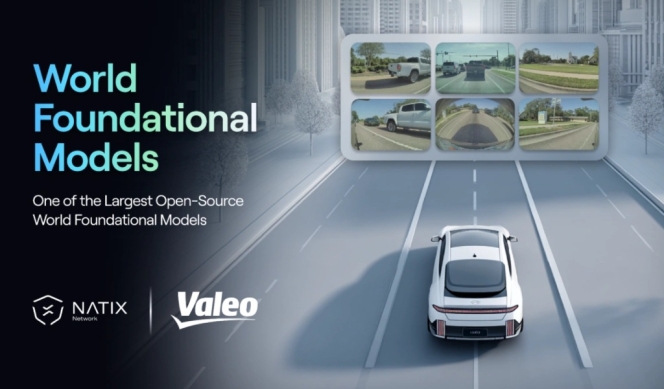
French technology company Valeo and NATIX Network have announced a partnership to develop a multi-camera World Foundation Model (WFM). The project combines Valeo’s research in artificial intelligence and generative modelling with NATIX’s decentralised physical infrastructure network (DePIN) to create an open-source platform for autonomous driving and robotics.
The initiative aims to move beyond perception-based models by creating a system capable of predicting future states and reasoning about physical interactions in a four-dimensional environment. The model will be trained using NATIX’s data network, which has collected 600,000 hours of video data across the US, Europe and Asia over seven months. This data provides the multi-camera inputs necessary for the spatial perception required by autonomous vehicles and robots.
The partnership builds upon Valeo’s existing open-source frameworks, VaViM (Video Autoregressive Model) and VaVAM (Video-Action Model). While these frameworks were previously trained primarily on front-camera datasets, the integration of NATIX’s multi-camera network expands the AI’s field of vision to 360 degrees.
Under the open-source framework, the partners will release models, datasets and training tools. This approach is intended to allow the research community to fine-tune models and benchmark physical AI across various driving conditions and geographic regions. The collaboration seeks to accelerate the deployment of end-to-end AI models by learning from real-world edge cases captured by vehicles in operation.
Marc Vrecko, Chief Executive Officer, Valeo’s Brain Division, said, “Since our creation in 2018, Valeo’s AI research center has been at the forefront of AI research in the automotive industry, especially in the fields of assisted and autonomous driving. Our goal has always been to advance mobility intelligence safely and responsibly. By combining Valeo’s generative world modeling research expertise with NATIX’s global multi-camera data, we are accelerating both the quality and the accessibility of next-generation end-to-end AI models, enabling the research community to build upon strong open models.”
Alireza Ghods, CEO and Co-Founder, NATIX, added, “WFMs are a once-in-a-generation opportunity — similar to the rise of LLMs in 2017–2020. The teams that build the first scalable world models will define the foundation of the next AI wave: Physical AIs. With our distributed multi-camera network, NATIX has a clear advantage of being able to move faster than large OEMs.”







Comments (0)
ADD COMMENT